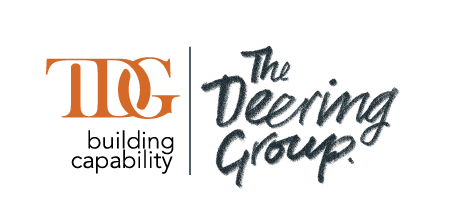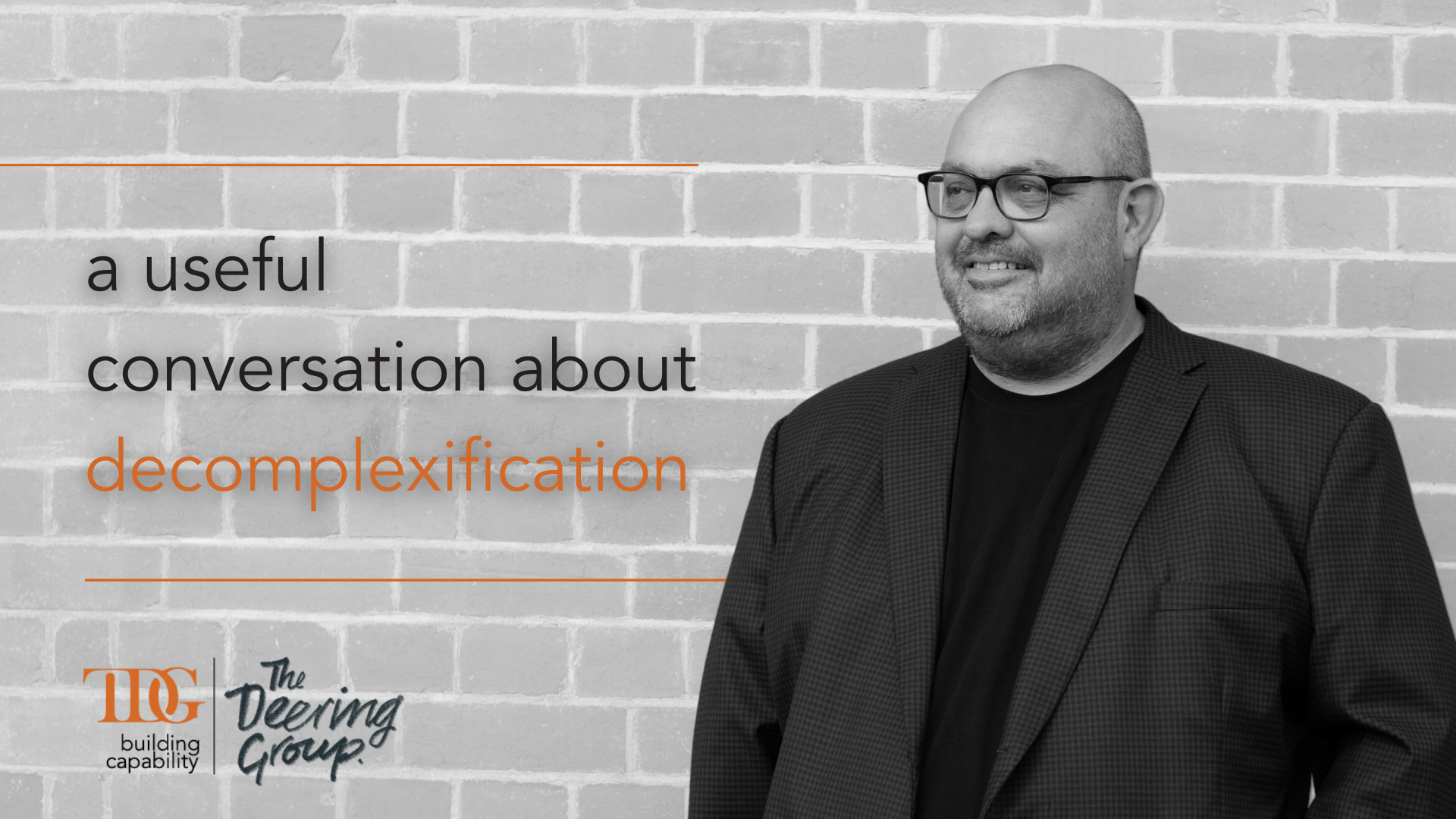Decomplexification: not just simplification
So much of the time, we're focused on simplification. We often want to find solutions to problems by simplifying or stripping things down to their bare bones, wiping the slates clean.
While it can be useful to ‘simplify’, it isn’t always a silver bullet.
In fact, sometimes simplification can create more problems, and more issues.
So, what should we be doing instead?
What we really need more of is this idea of decomplexification.
I know, not a real word. Please humour me as I think it helps us illustrate the issue of simplistic simplification!
This concept of decomplexification is critical but not understood and often missed in its application for businesses and their people.
So, what does it mean, and why do I think it is important?
Let’s go a little further down my made-up word rabbit hole.
Have you ever been faced with one of those issues, you know the ones?
It’s been ignored for years, or maybe it’s been band-aided for equally as long.
Possibly people have even tried to ‘fix’ it by adding or removing, simplifying, or so they think.
Now it stands before you, an edifice to ‘simplicity’ and people’s best intentions.
And its daunting. So where to begin….
At this point, you need to ask yourself a question,
How do you safely unravel this construct to get a less complex outcome without introducing unmanaged risk, pain, or problem?
How will you safely identify and remove those elements that do not serve a purpose, that are no longer needed, that are just unnecessary collateral or noise?
They’re the elements that cause the individual, the team, and the business to stumble, rather than holding them up and enabling them in a meaningful and useful way.
The complexity that doesn’t allow us to be safe, skilled, and effective in our businesses and in our teams.
The seeming security of layers that have become barriers.
And not barriers of protection, but rather barriers to execution. What I call clutter.
To succeed in simplification, we need to take a pathway of decomplexification to declutter safely and sustainably.
While simplification is about basic removal, decomplexification is much more powerful and measured.
It’s a way of replacement re-engineering.
In a nutshell, decomplexification is about understanding the gap left and mindfully considering if the system needs something else to be placed there to maintain its integrity.
And if nothing is required, then be conscious of the removal and the new space available.
It’s less about simplifying and more about removing complexity safely and permanently.
It’s like taking down a whole bunch of scaffolding, realising the building is fine, or that all you need is a ladder.
It’s removal that’s staged and stepped to make sure what is left in place serves your needs and adds value, so when you accelerate again, you’ll do it in the best possible way with the right infrastructure around you — supporting you, your team, and your business.
When we look at what we’ve been through over the past two years worldwide with Covid, decomplexification reveals itself as something that will be critical as we move onwards.
As people, we’ve had to organise ourselves in specific ways, learn new behaviours, rules, ways of living, socialising, etc.
We’ve added in so many new layers of complexity in how we do life. Think about it….
It’s not going to be an easy simplification process to tear that all down and move forward, as much as we would like to do that.
Instead, we will need to consider how we meaningfully remove complexity, clutter, those pieces that add no value and have no purpose, so that life can expand again, to be the fullness of what it is meant to be.
Similarly, in business, Covid or not, I see so many businesses that are choked with complexity – clutter.
Somehow over months, years and decades, people have just added layer upon layer of ‘stuff’ – complexity – documentation, requirements, training, processes, roles, and procedures. It seems endless, and it most certainly adds burden and frustration and leads to increased cost and disengagement.
Much like that edifice to ‘simplicity’ we discussed earlier.
At what point does anyone stop and ask: “Is it all still needed?”
Has this complexity that we’ve created become a world unto itself?
Decomplexification requires analysis, experience, and decision.
It needs to be done mindfully, in a considered way.
It is all about avoiding the gap (or the risk of a gaping hole) left when you start to take the complexity out of any system.
It considers the complexity and unravels it, removing what is no longer needed, leaving a more simple and useful solution, a solution that is enough.
It is all about slowing down to let you speed up, be better, and do better.
We should be applying this to our leadership and decision making and encouraging decomplexification (or decluttering if you prefer) as part of our continuous improvement, both at an organisational and individual level.
How can you decomplexify to improve your business or your team?
If you’d like to explore what this means for you, reach out to me.
We do this work all the time. Helping people rediscover simple, less complex pathways.
Pathways that do not add risk, pain, or further problems into the business, instead, they provide clear and true pathways. Ones that add value.
I look forward to decomplexifying with you.
Onwards.
Andrew Deering
Managing Director






